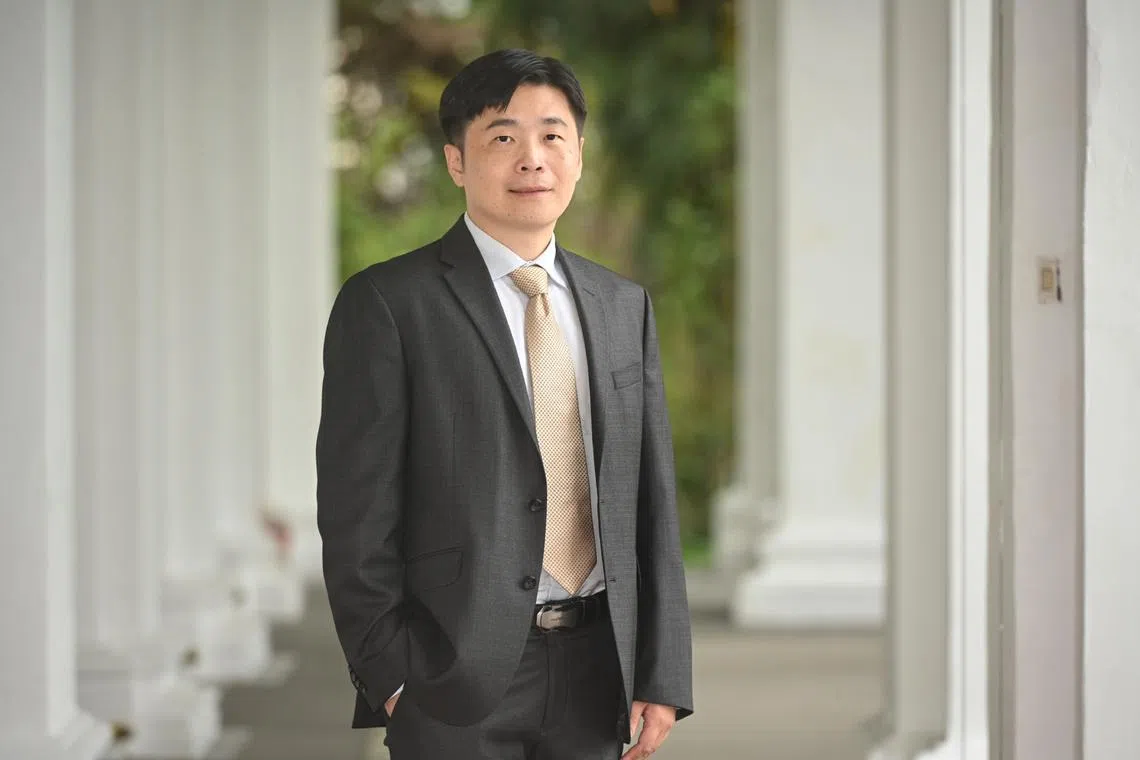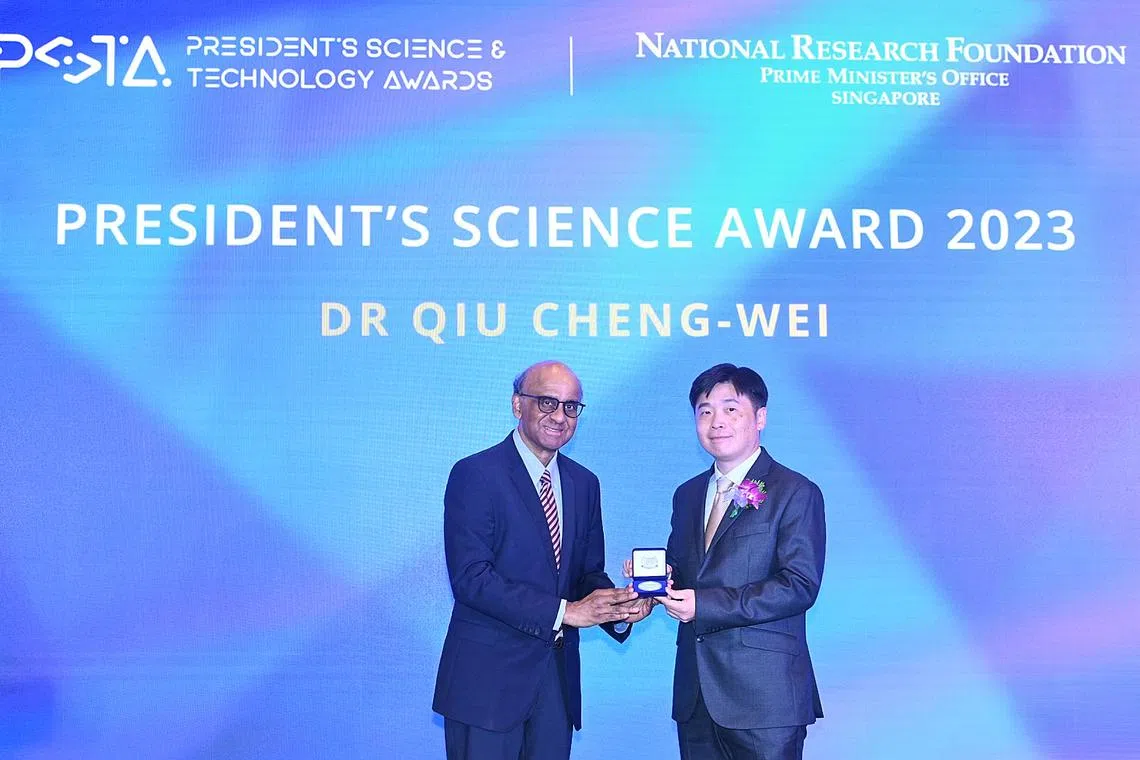NUS scientist who found way to cool buildings with less energy wins top science award
Sign up now: Get ST's newsletters delivered to your inbox

Prof Qiu Cheng-Wei is the winner of the President’s Science Award at the 2023 President’s Science and Technology Awards.
ST PHOTO: DESMOND WEE
SINGAPORE - As temperatures around the world surge due to global warming, Associate Professor Qiu Cheng-Wei’s scientific discoveries in thermal conduction could pave the way for cooling down buildings with less energy.
For his contributions, Prof Qiu, 42, who is also dean’s chair professor at the National University of Singapore’s (NUS) College of Design and Engineering, received the President’s Science Award at the 2023 President’s Science and Technology Awards on Friday at the Istana.
The awards are the country’s top honours for research scientists and engineers, and are given annually to those who have made exceptional contributions to science and technology.
The President’s Science Award recognises those whose outstanding contributions have transformed one or more science and technology fields.
Using quantum mechanical wave theories, Prof Qiu found that it is possible to control heat diffusion in sophisticated ways and optimise efficacy in systems that need cooling.
Giving the example of holding a needle up to a candle flame, he explained: “We can engineer the structure of the needle such that we can slow down the heat conduction. So you may hold the needle, but you don’t feel the heat. We could also engineer the structure of the needle to conduct the heat much faster than what steel could allow.”
Based on this discovery, conductive thermal metamaterials, or artificial materials used to manipulate heat flow, can be developed and applied at a much larger scale. When incorporated into paints and concrete, any surface coated with the material can channel heat to exterior areas, cooling the room.
“Each room can very reliably reduce about 1 to 2 deg C. This means you can set your air-conditioner to 28 deg C, and it feels like 26 deg C, and you can cut your electricity bill. That will contribute to our national target of achieving net-zero emissions by 2050,” said Prof Qiu, who added that the research can also be applied to cooling down overheated computer chips.
“I have been working on this for the past 15 years. I feel grateful that the country and panel recognised my research excellence, and it showcases that the research has a real-world impact,” he added.
Mr Quek Gim Pew, senior research and development consultant at the Ministry of Defence, was awarded the President’s Science and Technology Medal, which is given to individuals who have made distinguished, sustained and exceptional contributions to Singapore’s development.
Mr Quek, 66, spent four decades in the ministry, driving numerous projects such as spearheading defence research and development, fostering the growth of essential strategic capabilities, and fortifying partnerships with international organisations.
In his role as chief defence scientist from 2016 to 2021, Mr Quek had a major influence on developing disruptive technologies for the Singapore Armed Forces.
The two men received their awards from President Tharman Shanmugaratnam.

President Tharman Shanmugaratnam (left) presenting the President’s Science Award to Prof Qiu Cheng-Wei on Oct 20.
ST PHOTO: DESMOND WEE
Three researchers were given the Young Scientist Award, which recognises individuals aged 35 or under who have shown potential to be world-class researchers in their fields of expertise.
The award is administered by the Singapore National Academy of Science and supported by the National Research Foundation (NRF).
The three are: Dr Chang Guoqing, 33, from Nanyang Technological University, whose work could lead to developing better solar panels and refined light-detection systems; Dr Tan Yong Zi, 34, from NUS, whose pioneering new techniques helped improve the drug development process; and Dr Soujanya Poria, 31, from the Singapore University of Technology and Design, who was recognised for his work in developing artificial intelligence systems.
They received their awards from Deputy Prime Minister Heng Swee Keat.
Mr Heng, who is also chairman of NRF, said in his speech at the ceremony that a deep mastery of science and technology will be critical, whether it is in tackling challenges related to climate change, combating the next pandemic, or dealing with the health needs of an ageing population.
He said: “I’m pleased to see that all of you have made contributions at the intersections of different scientific domains. This illustrates the importance of interdisciplinary research.
“The insights and breakthroughs achieved in one domain can inform and impact outcomes in others. The awards tonight are a recognition of your achievements thus far, and I hope that it also serves to motivate you and inspire you to even greater peaks ahead.”



